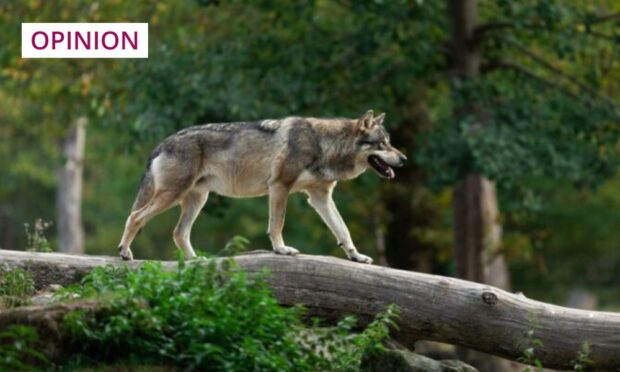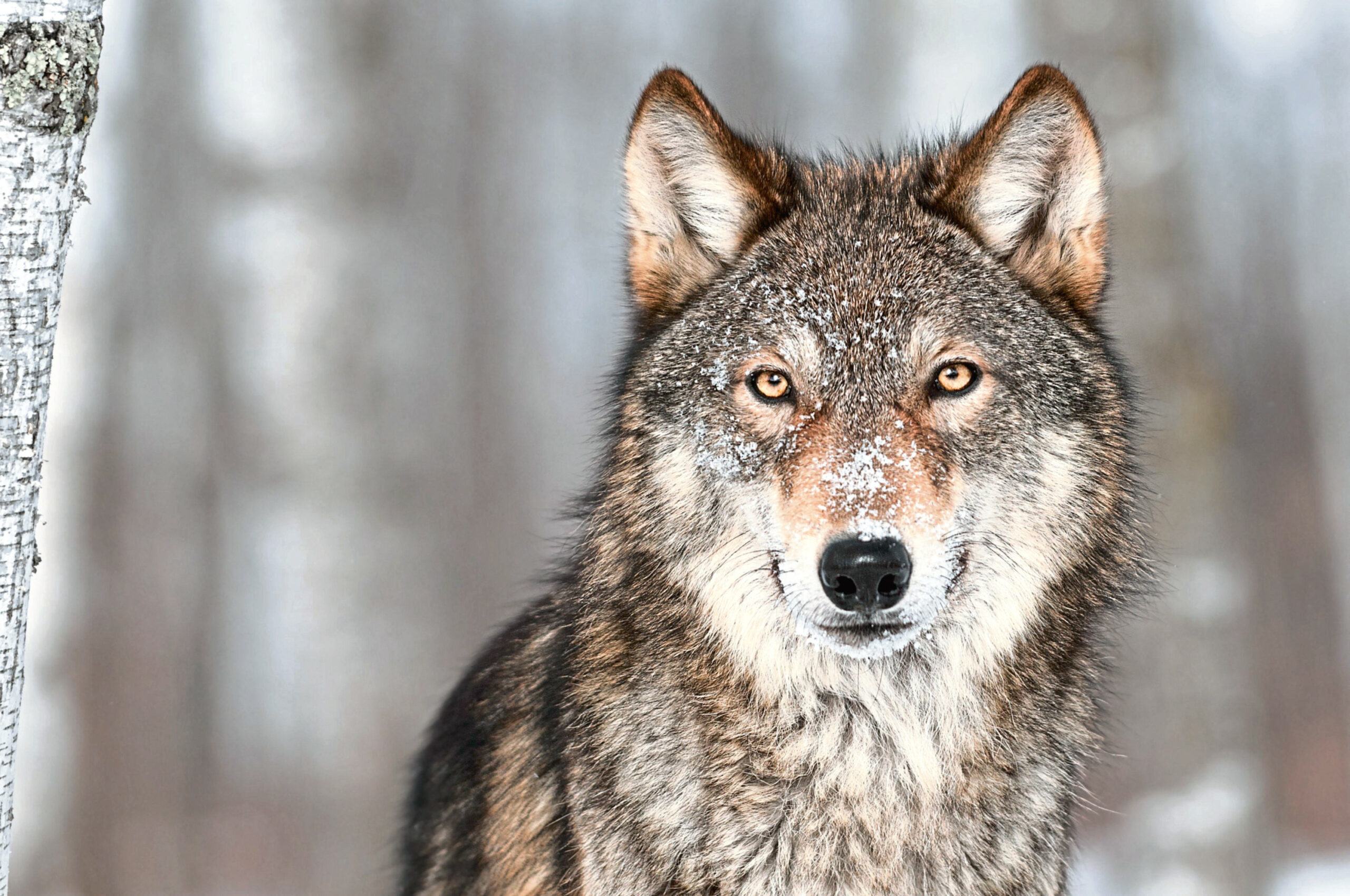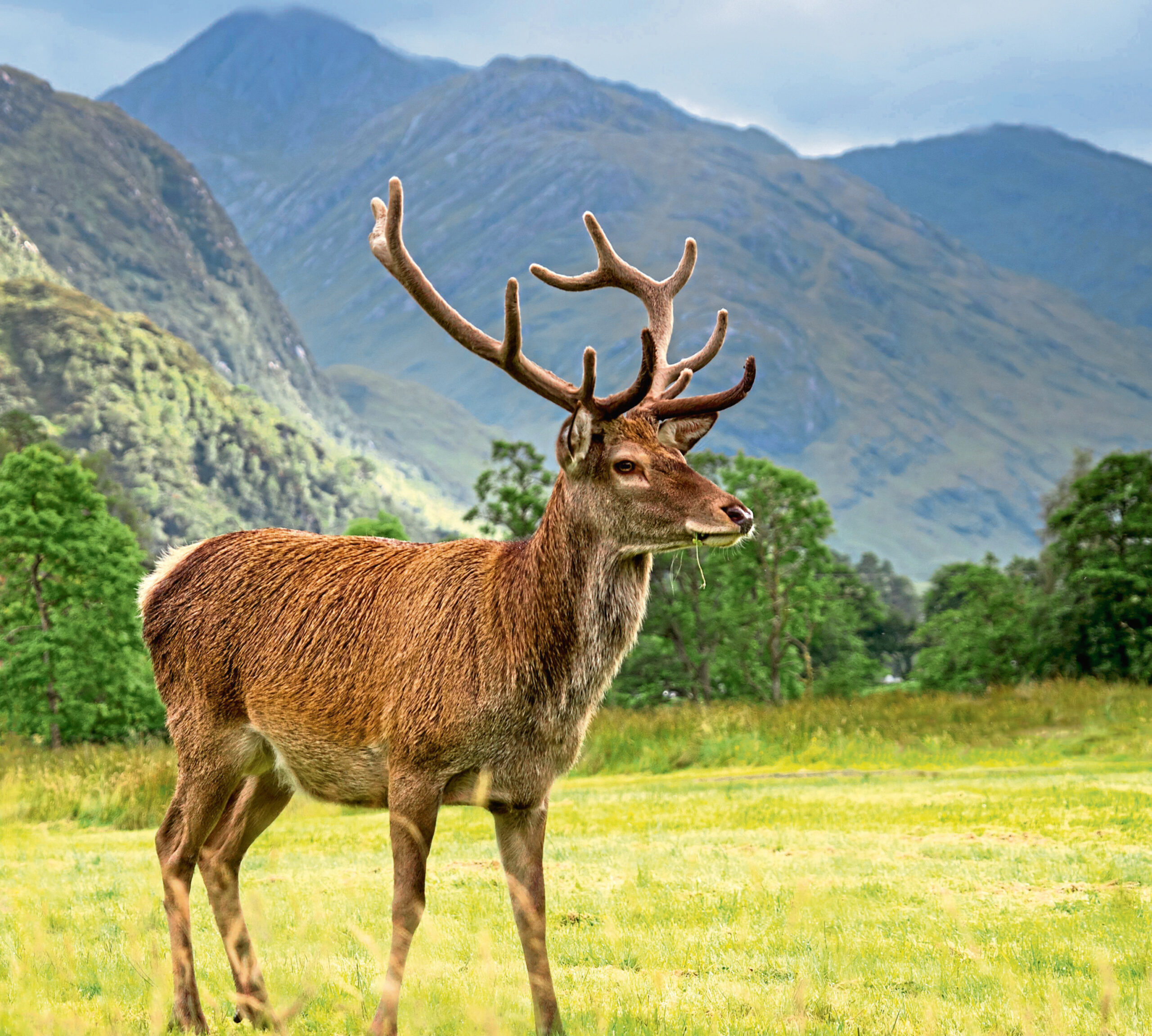There are times when it seems like Scotland is making real progress with nature.
It’s as if there is a thoughtful determination to reverse historic outrages that brutalised our landscapes and obliterated our most influential wildlife species over centuries, culminating in the final flourishes of the Victorians and their grim legacy of deer forest and grouse moor.
Then there are times when it seems as if we are nowhere at all, when giving nature its head and learning from it is as distant an outcome as ever.
When we lack the willingness to take the truly tough decisions. When we lack the courage. This is one of those times.
‘Transformative effect’
I watch enviously as wolves reclaim old footholds on the land all across Western Europe so that now they are in every mainland country, including Luxembourg, Belgium, the Netherlands and Denmark.
If there was a land bridge, they would be here, and given the deer-drenched nature of the Scottish landscape compare to those four countries, Scotland would be wolf paradise.
The people of these four countries have largely welcomed the wolf. Exceptions are farmers and hunters.
No-one has been attacked, no-one has died. Only wolves have been attacked, albeit in small numbers, illegally killed or wounded by men with guns.
These last two decades along Europe’s eastern seaboard has been life-affirming, the wolves adapting, finding a way to make the 21st century landscape work for them, inviting a thoughtful response from people.
The effect they would have today on our landscape, overrun with deer after more than 200 years with no effective top predator, is transformative beyond our imagining.
The only difference between here and mainland Europe is that we would have to go and get the wolves, and bring them back in a series of thoughtfully-sited reintroductions.
Nothing else stands in our way.
Nothing except the total absence of courage among those who are paid to look after nature’s interests, the professional conservationists and the politicians.
There was an interview in the Sunday Post at the weekend with the new chairman of the Scottish Wildlife Trust, Kenny Taylor, a conservationist of wide experience.
I know him of old and thought it sounded like a good appointment.
Then I read the bit about species reintroduction. He is quoted thus: “The words wolf and bear are scary and I don’t think it’s on our agenda to move them to the front of the queue.
“We could have wolves back in Scotland tomorrow but the problems are social ones…”
The words wolf and bear are scary. That is where professional conservation stands in 21st century Scotland.
‘Silent animal within’
There was a photograph on the front page of The Courier a few days ago, an entry for the readers’ competition, a picture of a red deer at Glencoe. It put in mind this memory.
For nineteen consecutive Tuesdays of summer and early autumn a few years ago, I gave a talk to groups of American visitors on a ship purpose-built to cruise between Inverness and Oban by way of the Great Glen.
Each Tuesday, she berthed for the night at the top of Neptune’s Staircase near Fort William.
I drove from Glen Dochart where I was staying at the time, across the Blackmount and through Glencoe, boarded the ship, had a meal with my audience, gave my talk about the wildlife and landscape of Highland Scotland and drove home.
It was an agreeable, well-paid assignment. The late-night drive home became a delightful ritual.
After Glencoe, somewhere about midnight, my car often the only wakeful human movement in that land, the long straights beyond Buachaille Etive Mor were unfailingly haunted by hundreds of red deer, a direct consequence of the absence of wolves.
They came to the road to graze the grass verges and moonbathe on warm the tarmac of the A82.
I made a habit of stopping in a lay-by. Switching off engine and lights, accustoming eyes and ears to varying degrees of darkness and quietude.
Not silence, for a relaxed herd of deer is a quietly conversational phenomenon, and there were foxes, owls, the passage of water, the varied pitches of the breeze.
The deer soon ignored the car and the silent animal within.
The complacency of the deer is as unnatural as the absence of wolves that permits it.
I wondered about buying a CD of wolf howls and playing it one night with the volume cranked up and the windows wide open to see what dim inheritance might stir in the collective breast of the herd then.
But I never did. I baulked at the artificial nature of the idea. I told myself I would wait for the real thing to come along, as it surely will. Sooner or later.
There are times when it feels like Scotland really is making progress with nature. And then there are times when reality kicks in.












